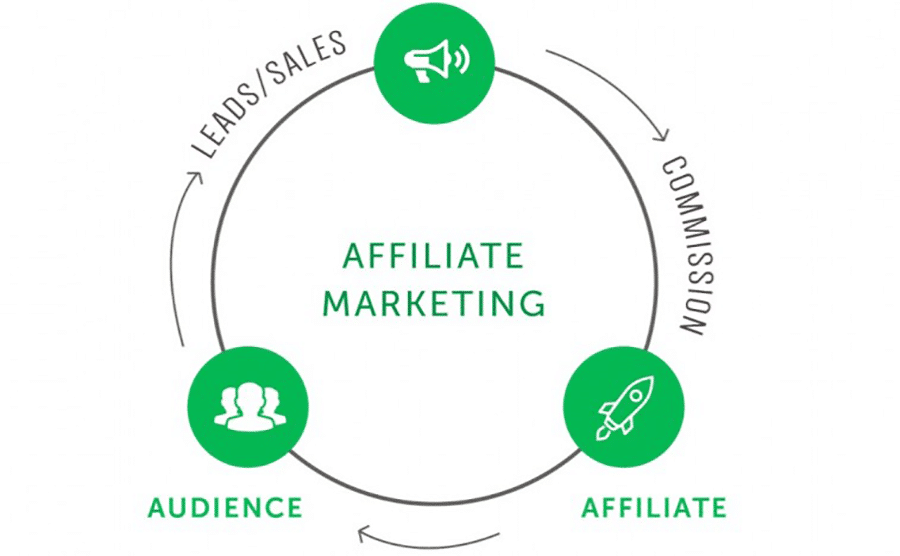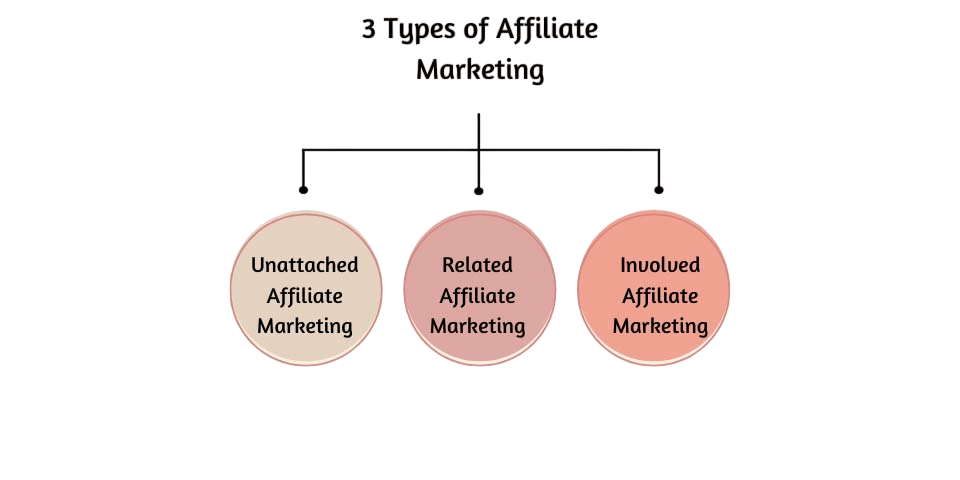
- Introduction
- Definition of Affiliate Marketing
- How Affiliate Marketing Works
- Key Players in the Ecosystem
- Types of Affiliate Marketing
- Popular Affiliate Marketing Channels
- Commission Models and Payout Structures
- Benefits of Affiliate Marketing
- Conclusion
Introduction
Affiliate marketing is a popular and effective online marketing strategy where individuals or companies known as affiliates promote another business’s products or services in exchange for a commission. It operates on a performance-based model, meaning affiliates are only paid when their efforts result in a desired action, such as a sale, lead, or click. This makes it a low-risk, high-reward strategy for both businesses and marketers. The process typically involves an affiliate sharing a unique tracking link through their website, blog, email list, or social media. When a user clicks on the link and completes a purchase or other action, the affiliate earns a commission. This model benefits businesses by extending their reach and driving sales through third-party promoters, while affiliates earn passive income without needing to create or manage the products themselves. Affiliate marketing is widely used across various industries, including e-commerce, Digital Marketing Training , software, finance, and travel. It’s accessible to beginners and scalable for professionals, making it one of the most attractive digital marketing strategies today. With the right approach, tools, and audience, affiliate marketing can become a reliable source of revenue and a key part of a broader digital marketing strategy.
Ready to Get Certified in Digital Marketing? Explore the Program Now Digital Marketing Online Training Offered By ACTE Right Now!
Definition of Affiliate Marketing
Affiliate marketing is a performance-based marketing model where a business rewards external partners called affiliates for generating traffic or sales through the affiliate’s marketing efforts. Affiliates promote a brand’s products or services using special tracking links, and when a visitor takes a predefined action (such as a purchase or sign-up), the affiliate earns a commission.Affiliate marketing is a type of performance-based marketing in which businesses reward affiliates (individuals or companies) for driving traffic, leads, Google’s Match Type Changes or sales to their products or services. This strategy involves an affiliate promoting a company’s offerings through content such as blog posts, videos, emails, or social media, using a unique tracking link. When a user clicks the link and completes a desired action typically a purchase the affiliate earns a commission. This model benefits both parties: companies expand their reach without paying upfront advertising costs, and affiliates can generate passive income without needing to develop or own a product. The commission structure varies, ranging from a percentage of the sale to a fixed fee per lead or action.

Affiliate marketing is widely used in industries like e-commerce, software, finance, and online education. Popular affiliate programs include those from Amazon, Shopify, and various SaaS companies. As digital content creation grows, so does the opportunity for individuals bloggers, influencers, YouTubers, and website owners to earn revenue through affiliate partnerships. Because it’s low-risk and performance-driven, affiliate marketing has become a foundational element in many digital marketing strategy, offering scalable growth for businesses and flexible earning potential for marketers.
How Affiliate Marketing Works
The affiliate marketing process typically follows these steps:
- A brand sets up an affiliate program, either through a network or their own platform.
- Affiliates join the program and receive unique tracking links or codes.
- The affiliate promotes the product/service via their website, Inbound Marketing, blog, email, or social media.
- A user clicks the link and completes a predefined action (e.g., purchases a product).
- The action is tracked via cookies or platforms, and a commission is recorded.
- The affiliate is paid based on the terms of the program.
- Merchant (Advertiser): The company selling the product or service.
- Affiliate (Publisher): The individual or company that promotes the merchant’s product.
- Affiliate Network: A third-party platform that connects affiliates and merchants and manages tracking, reporting, and payments.
- Customer: The end user who clicks the affiliate link and completes a conversion.
- Affiliate Manager: A specialist who manages relationships, Benefits of being a Content Marketer, compliance, and performance metrics for a brand’s affiliate program.
- Unattached Affiliate Marketing: The affiliate has no connection to the product and promotes it through paid ads or digital content. This is common in PPC campaigns.
- Related Affiliate Marketing: The affiliate promotes products they have some authority in or content related to. For example, Display Advertising a tech blogger promoting a new software tool.
- Involved Affiliate Marketing: Affiliates who personally use and endorse the product, often through reviews or tutorials. Their recommendations are more trustworthy and typically convert better.
- Low Startup Cost: You don’t need to create products, hold inventory, or manage shipping just promote and earn.
- Passive Income Potential: Once your content is live, you can continue earning commissions from traffic over time.
- Performance-Based Earnings: You’re paid for actual results sales, leads, or clicks making it a highly rewarding model.
- Flexible Work Environment: Work from anywhere, anytime ideal for freelancers, digital nomads, and side hustlers.
- Scalability: Easily scale your efforts by promoting more products or reaching larger audiences.
- Diverse Product Choices: Promote a wide range of products or services that fit your niche or audience.
- No Customer Support Needed: The merchant handles all post-sale issues, returns, and customer service.
- Access to Established Brands: Affiliate programs often let you align with trusted, well-known companies to boost credibility.
- Multiple Revenue Streams: You can join several affiliate programs and diversify your income sources.
- Analytics and Tracking Tools: Most programs offer insights to help you optimize performance and increase conversions.
To Explore Digital Marketing in Depth, Check Out Our Comprehensive Digital Marketing Training To Gain Insights From Our Experts!
Key Players in the Ecosystem
Key Players in the EcosystemAffiliate marketing involves several critical participants:
Types of Affiliate Marketing
Types of Affiliate Marketing can take several forms:

Looking to Master Digital Marketing? Discover the Digital Marketing Expert Masters Program Training Course Available at ACTE Now!
Popular Affiliate Marketing Channels
Affiliate marketing can be executed through various channels, each offering unique advantages depending on the audience and content style. One of the most popular channels is blogging, where content creators write product reviews, tutorials, or comparison articles that include affiliate links. YouTube is another highly effective platform, with creators incorporating affiliate links in video descriptions while showcasing or reviewing products. Digital Marketing Training platforms like Instagram, TikTok, and Facebook are also widely used, especially by influencers who promote products through sponsored posts or stories. Email marketing remains a strong channel as well marketers build a subscriber base and share curated recommendations that include affiliate links. Additionally, coupon and deal websites often partner with brands to share affiliate links offering special discounts, driving high-conversion traffic. Podcasting is an emerging affiliate channel, where hosts verbally promote products and direct listeners to affiliate links. Lastly, paid advertising such as PPC campaigns on Google or social ads—can be used by experienced affiliates to drive targeted traffic, though it requires careful cost management. Each channel serves a different audience and intent, so successful affiliate marketers often combine several to maximize their reach and conversions.
Commission Models and Payout Structures
Affiliate marketing operates on various commission models and payout structures, each designed to reward affiliates based on performance. The most common model is Pay-Per-Sale (PPS), where affiliates earn a percentage of the sale amount whenever a referred customer completes a purchase. This is popular in e-commerce and SaaS programs. Another common structure is Pay-Per-Lead (PPL), where affiliates are paid for generating qualified leads such as sign-ups, form submissions, or trial registrations regardless of whether a sale occurs. This model is often used in industries like finance, education, and insurance. Pay-Per-Click (PPC) is less common but still used; it pays affiliates for each click on their unique tracking link, making it suitable for traffic-focused campaigns. Payout structures vary by affiliate program. Some offer fixed commissions, while others use tiered rates rewarding affiliates with higher commissions as they refer more sales. Recurring commissions are also popular, especially with subscription-based products, where affiliates earn a percentage every month for as long as the customer stays active. Payments are typically made via bank transfer, PayPal, or other digital wallets, with common payout schedules being weekly, biweekly, Video Marketing or monthly. Understanding these models helps affiliates choose the right programs and align their strategies with the most profitable outcomes.
Benefits of Affiliate Marketing
Preparing for Digital Marketing Job Interviews? Have a Look at Our Blog on Digital Marketing Interview Questions and Answers To Ace Your Interview!
Conclusion
Affiliate marketing is a versatile and results-driven strategy that benefits both businesses and individuals. Whether you’re a company seeking efficient customer acquisition or a content creator looking to monetize your audience, affiliate marketing offers scalable opportunities. Success requires strategic planning, transparency, digital content and continuous optimization. By understanding the ecosystem, choosing the right partners or products,Types of Affiliate Marketing and applying best practices, affiliate marketing can become a significant revenue channel.Affiliate marketing is a powerful, flexible, Key Player in the Ecosystem and cost-effective way for individuals and businesses to generate income online. Whether you’re a content creator, blogger, influencer, or entrepreneur, affiliate marketing offers the opportunity to earn commissions by promoting products and services you believe in without the need to manage inventory or customer service. With various channels, commission models,marketing strategy and tools available, it’s accessible to beginners while still offering room for advanced marketers to scale and optimize. By understanding the fundamentals of how it works, the types of affiliate programs, Digital Marketing Training and the best strategies you can build a sustainable income stream and grow your online presence. As digital commerce continues to expand, affiliate marketing remains a valuable piece of the online business puzzle.




